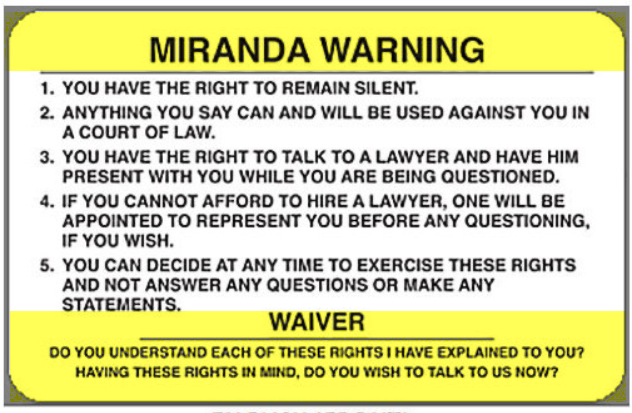
When you are arrested, you are taken into custody. This means that you are not free to leave the scene. Without being arrested, you can be detained, however, or held for questioning for a short time if a police officer or other person believes you may be involved in a crime. For example, an officer may detain you if you are carrying a large box near a burglary site. You can also be detained by storekeepers if they suspect you have stolen something.
Whether you are arrested or detained, you do not have to answer any questions except to give your name and address and show some identification if requested.
Whether you are an adult citizen or non-citizen, you have certain rights if you are arrested. Before the law enforcement officer questions you, he or she should tell you that:
You have the right to remain silent. Anything you say may be used against you. You have a right to have a lawyer present while you are questioned. If you cannot afford a lawyer, one will be appointed for you. These are your “Miranda” rights, guaranteed by the U.S. Constitution. If you are not given these warnings, your lawyer can ask that any statements you made to the police not be used against you in court. But this does not necessarily mean that your case will be dismissed. This does not apply if you volunteer information without being questioned by the police.
We strongly suggest that you limit your conversation with investigating police officers to giving them your name and date of birth asked. Always be polite and cooperative with the officer.

Shawn C. Mills, Attorney at Law #189893
MONTEREY CRIMINAL DEFENSE SERVICES
702 Forest Avenue, Suite A
Pacific Grove, CA 93950
(831) 372-3000 or
(831) 521-Six-Two-Six-Five

